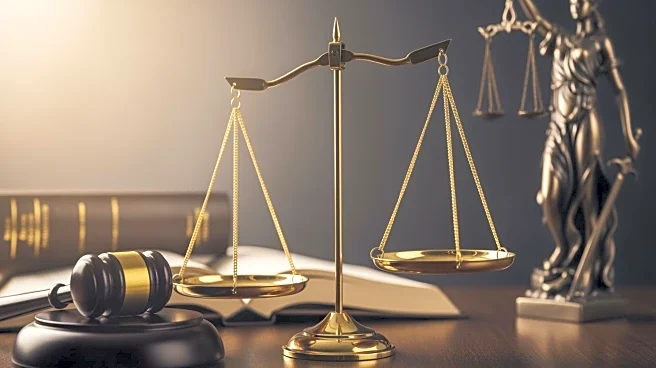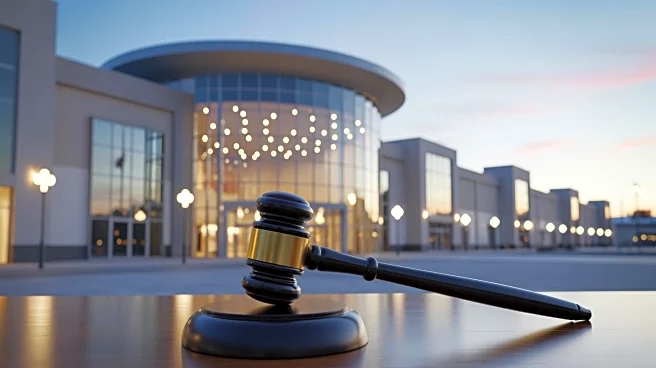What's Happening?
James Comey's legal team has filed a motion to dismiss charges against him, arguing that the indictment was a result of President Trump's pressure campaign that violated Justice Department norms and Comey's free speech rights. Comey, the former FBI director,
was indicted last month on charges of making false statements to Congress and obstruction of a congressional proceeding related to his 2020 Senate Judiciary Committee testimony. The filing claims that Trump's direct calls for prosecution were motivated by personal spite and political retribution, leading to the appointment of Lindsey Halligan, a White House aide, as interim U.S. Attorney to bring the charges. Comey's attorneys argue that the prosecution is vindictive and lacks legitimate government interest.
Why It's Important?
The case against Comey highlights concerns about the politicization of the Justice Department and the potential misuse of prosecutorial power for political ends. If the charges are dismissed, it could set a precedent for challenging politically motivated prosecutions and reinforce the importance of maintaining impartiality within the judicial system. The outcome of this case could impact public trust in the legal process and the perceived integrity of government institutions. It also raises questions about the balance of power between the executive branch and independent legal authorities.
What's Next?
Judge Michael Nachmanoff will review the motions filed by Comey's attorneys, which include arguments for dismissal based on vindictive prosecution and questioning the legal authority of the acting U.S. Attorney. The court's decision could influence future legal strategies in politically charged cases. Additionally, the Department of Justice's request to expedite evidence review will be considered, potentially affecting the timeline and scope of the proceedings. Stakeholders, including political leaders and legal experts, are likely to react to the court's decisions, shaping the discourse around judicial independence and executive influence.
Beyond the Headlines
The case underscores ethical concerns about the use of legal systems to target political adversaries, challenging fundamental constitutional values such as due process and equal protection. It may prompt discussions on the need for reforms to safeguard against the politicization of legal proceedings. The broader implications could include shifts in how political figures interact with judicial processes and the potential for increased scrutiny of prosecutorial decisions in politically sensitive cases.















